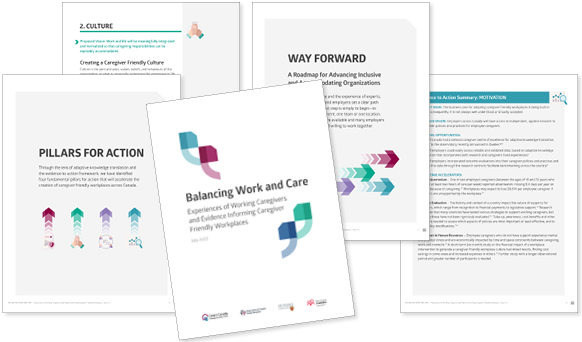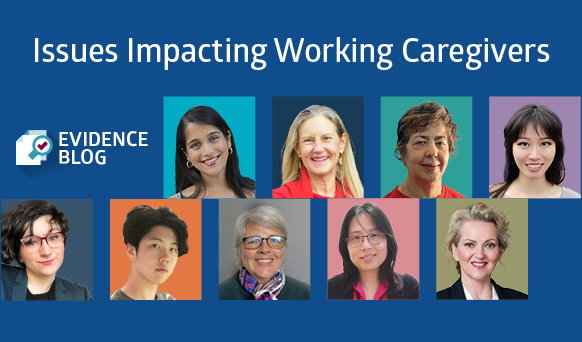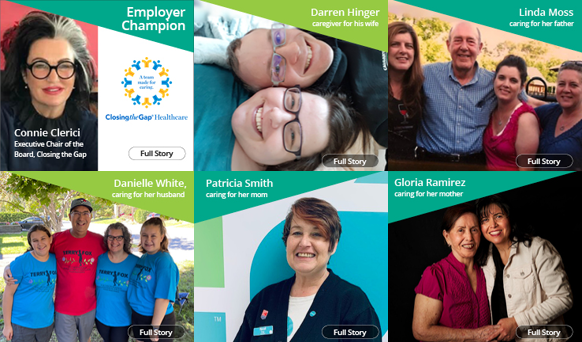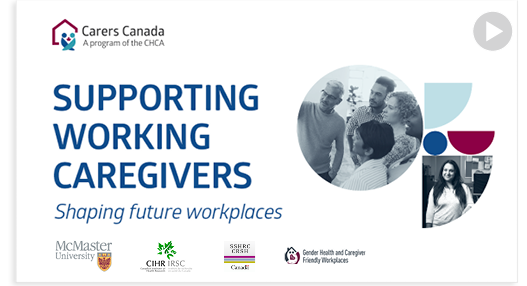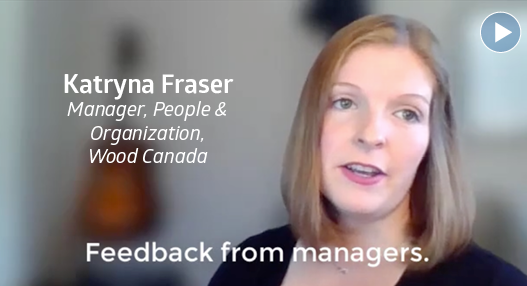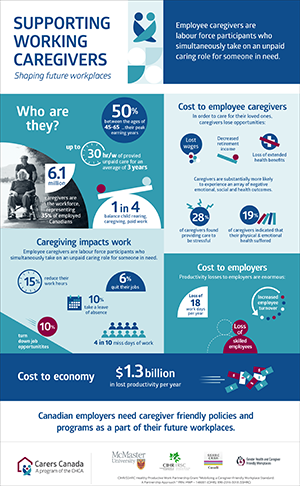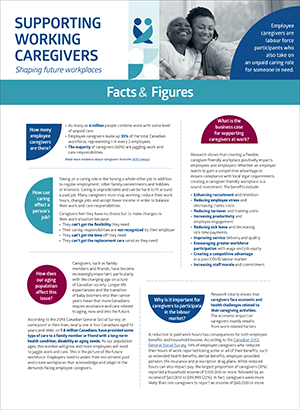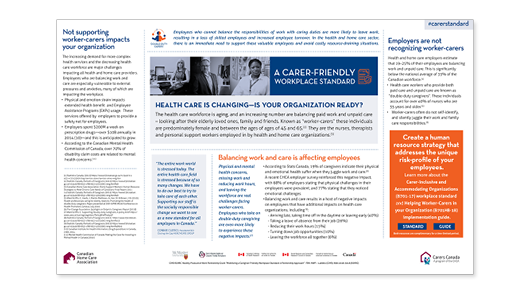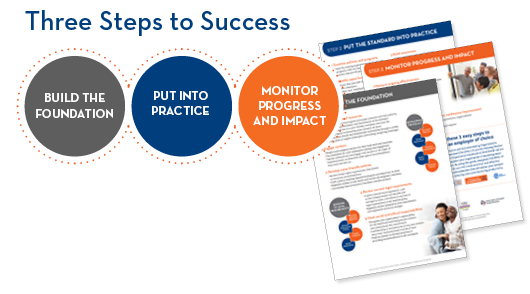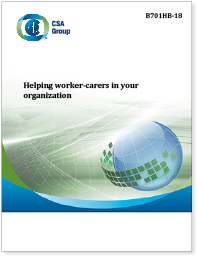Over 6 million Canadians combine paid work with some level of unpaid care. Employee caregivers make up 35% of the total Canadian workforce, representing 1 in every 3 employees. Taking on a caring role is like having a whole other job in addition to regular employment, other family commitments and hobbies or interests. Caring is unpredictable and can be hard to fit around a paid job. Many caregivers must stop working, reduce their work hours, change jobs and accept lower income in order to balance their work and care responsibilities.
Balancing Work and Care
Experiences of Working Caregivers and Evidence Informing Caregiver Friendly Workplaces
This paper uses a reflective methodology to enhance the understanding, application and mobilization of evidence and knowledge toward action. The adaptive knowledge translation approach involves a process of continuous learning based on research evidence, storytelling, lived experiences and catalyst conversations. The personal perspective of those with lived experiences enables a deeper understanding of how to support the development of flexible, caregiver friendly workplaces.
Research on Inclusive Workplaces: Evidence Blogs
A series of 18 research blogs by academics involved in the SSHRC/CIHR project entitled “Mobilizing a Caregiver-Friendly Workplace Standard: A Partnership Approach“. Each listing provides a brief overview of the research findings and links to published papers. In addition to these snapshots, many of the academics also have a prominent Twitter presence. Explore the list and find an academic blog that you really enjoy reading.
Impact of Inclusive Workplaces: Caregiver and Employer Experiences
The COVID-19 pandemic has reinforced the importance of supportive and inclusive workplaces. Working from home, taking on increased care responsibilities (both childcare and elder care) and navigating shifting routines has posed new challenges for employers and their employees. Read about Canadians who are balancing work and care and how employer champions are creating flexible workplaces for their staff.

Canadian employers can implement effective caregiver inclusive and accommodating workplace practices to ensure their employees who are balancing work and care are supported and productive. Whether an employer wants to gain a competitive advantage or ensure compliance with local legal requirements, creating a carer-friendly workplace is a sound investment.
Download these helpful tools and take action today!
Many Canadian employers are adapting existing workplace practices and provisions to meet the needs of employee caregivers on a case-by-case basis. However, it is critical to take the next steps to develop and adapt corporate policies and procedures that create a flexible, family-friendly workplace for all employees.
Health Care Worker Risk Profile shows the challenges and concerns of healthcare workers who are balancing paid work and unpaid care. Compelling reasons to create a business case that addresses the unique risk profile for health care employees.
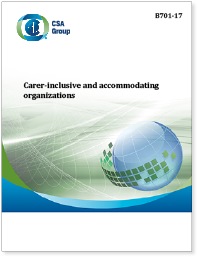 CSA Standard B701-17 – Carer-inclusive and accommodating organizations Available free of charge (time limited offer).
CSA Standard B701-17 – Carer-inclusive and accommodating organizations Available free of charge (time limited offer).
The Canadian Home Care Association, through Carers Canada, led the first 4 years of the knowledge mobilization activities for this multi-sectorial research program ‘Carer-Inclusive and Accommodating Organizations’ Standard (CSAB701-17). Under the direction of the Primary Investigator, Dr. Allison Williams, CIHR Research Chair in Gender, Work and Health at McMaster University, the project worked to increase awareness of the standard across Canada; evaluate readiness to change; determine feasibility and cost benefit; embrace cultural competency and indigenous perspectives; and, create an international carer standard for employers. The project is continuing under the leadership of Dr. Williams with knowledge mobilization through Nora Spinks, Knowledge Mobilization Specialist.

CIHR/SSHRC Healthy Productive Work Partnership Grant “Mobilizing a Caregiver-Friendly Workplace Standard: A Partnership Approach ” FRN: HWP – 146001 (CIHR); 890-2016-3018 (SSHRC)


